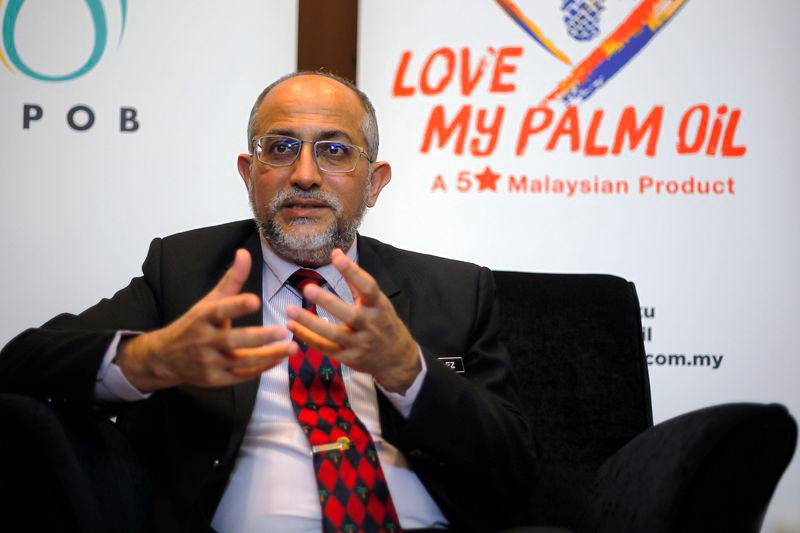KUALA LUMPUR: The Malaysian Palm Oil Board (MPOB) hopes the government will assist planters in accelerating replanting activities to rejuvenate unproductive and ageing oil palm trees in Budget 2025, thus enhancing the sector’s productivity.
Its director-general, Datuk Dr Ahmad Parveez Ghulam Kadir, said these efforts will ensure the sector’s continued growth while addressing environmental concerns.
He said another critical priority is addressing the regulatory challenges due to the European Union Deforestation Regulation (EUDR).
“Some key priorities for the oil palm sector revolve around productivity enhancement. As Malaysia’s arable land is limited, further expansion is not feasible, especially with the need to maintain a balance between industry growth and environmental sustainability.
“Therefore, the focus is on maximising productivity on existing plantations, which can be achieved through adopting new technologies and replanting with high-yielding planting materials,” he told Bernama today.
ALSO READ: Budget 2025: KPK proposing initiatives to strengthen oil palm industry
Ahmad Parveez noted that strengthening Malaysia’s sustainability certification, particularly through the Malaysian Sustainable Palm Oil (MSPO) Certification Scheme, will be essential for maintaining access to critical markets like the European Union.
“Policies that encourage the adoption of new technologies, such as Industry 4.0 advancements to improve mechanisation and reduce reliance on labour in plantations, are also vital.
“Research and development funding should focus on areas such as precision agriculture, the development of high-yielding planting materials, and sustainability measures to enhance biodiversity and protect the environment,” he noted.
Ahmad Parveez stated that supporting initiatives promoting the circular economy, including valorising waste from oil palm by-products, will be crucial in positioning the sector for long-term growth.
“For the past 10 years (2013-2023), the area of old palm trees that were over 25 years old had increased by 5.1 per cent per year, coupled with the current replanting rate remaining below the recommended level, thus causing the decline in productivity during the period.
“We believe this is largely due to financial constraints many industry players face. We hope to see more incentives directed towards replanting initiatives, as a significant portion of ageing trees reduces the overall yield,” he stated.
Ahmad Parveez also suggested the government introduce policies or financial aid to expedite replanting activities involving plantation companies, which would greatly benefit the sector.
He added that an incentive scheme for machinery, especially for infield collection activities, should be considered to encourage planters to increase the level of mechanisation to reduce dependence on manual labour.
“Mechanisation has been proven to reduce labour utilisation and increase labour productivity. We also hope there are some incentives to combat pest and disease issues, particularly for independent smallholders, as these factors also impede productivity.
READ MORE: Competitiveness of M’sian palm oil industry at stake if windfall tax not revised: Johari
“Policies driven towards enhancing the implementation of Integrated Pest Management to address key issues, such as bagworm infestation, would be much favourable for the industry, especially assisting smallholders in combating its threat to their income and livelihoods,” he added.
On the climate control and management agenda, initiatives towards technology adoption, such as data analytics and artificial intelligence to monitor the exchange of greenhouse gases in plantations, would also allow the country to lay a strong foundation for understanding the dynamics and develop systematic and scientific approaches.
“By addressing these areas, the sector will not only achieve higher yields but also strengthen its export performance, as improved productivity will make Malaysian palm oil more competitive in international markets, said Ahmad Parveez.
Recently, the Ministry of Plantation and Commodities has submitted two proposals to the Ministry of Finance to be considered for inclusion in Budget 2025, namely a revision of the windfall profit levy (WPL) on palm oil and additional allocations for palm oil replanting programmes.
Minister of Plantation and Commodities Datuk Seri Johari Abdul Ghani said that he hopes the government would consider additional allocations for the Smallholder Palm Oil Replanting Financing Incentive Scheme (TSPKS) to be included in the budget, noting that nearly 1.5 million hectares of palm oil plantations are currently managed by smallholders.
“Last year, the government allocated RM100 million for the TSPKS 2.0, 50 per cent of which as grants and 50 per cent as loans. However, I believe more funding will be needed for palm oil replanting to ensure our future exports are not affected,” he said.
Meanwhile, Prime Minister Datuk Seri Anwar Ibrahim also highlighted that the MADANI government remains committed to bolstering the country’s palm oil industry.
He said the government has continued engaging various sectors of society, including industry players, ahead of the Budget 2025 presentation on Oct 18.
“During the engagement session, we tackled several critical issues, such as foreign worker shortages and low palm oil production rates. Additionally, discussions centred on enhancing downstream activities to secure the long-term sustainability of the palm oil industry,” the prime minister said in a post on X.
The prime minister’s engagement series involved the Perak menteri besar, the minister of Plantation and Commodities, the chief secretary to the government, senior officials, and key figures from the oil palm industry.









